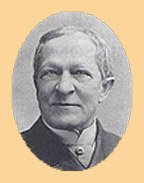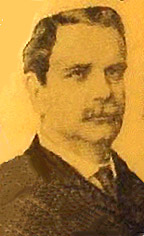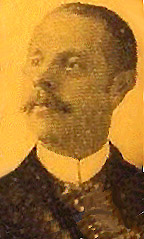 |
NYCHS Presentation Page 9 of 14 |
Sections from the Code of Criminal Procedure.
TITLE
X.
Chapter
1.
The
Death Penalty.
Section
491. Death warrant, confinement of prisoner
thereunder.
492. Time of execution.
493. Judge to send record of conviction to
Governor.
494. Governor may consult judges.
495. Governor only reprieve – exceptions.
496 Procedure when convict becomes insane.
497. Duties of district attorney.
498. Inquisition; execution when suspended.
499. Sheriff to transmit inquisition to
Governor; Governor to act thereon.
500. When female convict is pregnant;
proceedings to be taken.
501. Inquisition; duty of sheriff.
502. Sheriff to transmit inquisition to
Governor; Governor's duty.
503. When day of execution passes other
than by reason of insanity or pregnancy.
504. Court to inquire, etc.
505. Death penalty; mode of infliction.
506. Death penalty; where inflicted.
507. Persons present, etc.
508. Certificate of execution.
509. Disability of warden to execute death
warrant.
INAUGURATION DATES |
CHAIR EXECUTION INMATES, DATES |
Jan. 6, 1885: |
Aug. 6, 1890 |
 Gov. Roswell P. Flower Nov. 3, 1891: |
June 18, 1892
John Fitzhume
William O. Taylor
John Johnson
Lucius R. Wilson |
 Gov. Levi P. Morton Nov. 6, 1894: |
April 4, 1895 |
Nov. 3, 1896: |
Jan. 20, 1897
Guiseppe Constantino
Robert G. Powley
Charles Burgess |
Nov. 8, 1898: |
Aug. 2, 1899
Oscar E. Rice |
 Gov. Benj. B. Odell, Jr. Nov. 6, 1900: |
July 16, 1901
Leon F. Czolgosz alias Fred Neiman
Fred Krist
John Truck
Clarence Egnor
Frank White alias Harry Howard
Antonio Giorgio
Guiseppe Versacia |
 Gov. Frank W. Higgins Nov. 8, 1904: |
Dec. 13, 1904
Henry Waverly Manzer |
 Gov. Charles E. Hughes Nov. 6, 1906: |
April 16, 1907
Carlo Giardi
Charles Bonier
Chester Gillette
Andrea Delvarno
William S. Brasch
Salvatore Randazzio
Mary Farmer
Pacy Hill
William Scott
Guiseppe Santucci
Theodore Rizzo
Earl B. Hill
William Gilbert |
Oct. 6, 1910: |
Nov. 8, 1910: |
March 31, 1911
Joseph Nacco
Dominick DePasquale
Ralph Friedman & Jacob Kuhn
John Maruszewski
James Williams |
Nov. 5, 1912: |
March 31, 1913
Raeffele Ciaverella
Michael Goslinski |
Oct. 17, 1913: |
Dec. 10, 1913
George Coyer & Guiseppe DeGioia |
Nov. 3, 1914: |
Dec. 9, 1914
Guiseppe Cino
Vincent Buonemsegno
Guiseppe Cino
David Dunn
Charles Sprague [Image selection & caption by NYCHS webmaster] |
DEATH WARRANT;
CONFINEMENT OF PRISONER THEREUNDER. – § 491.
When
a defendant is sentenced to the punishment of death, the judge or judges
holding the court at which the conviction takes place, or a majority of them,
of whom the judge presiding must be one, must make out, sign and deliver to the
sheriff of the county, a warrant stating the conviction and sentence, and
appointing the week within which sentence must be executed. Said warrant must
be directed to the agent and warden of the State prison of this State
designated by law as the place of confinement for convicts sentenced to
imprisonment in a State prison in the judicial district wherein such conviction
has taken place, commanding such agent and warden to do execution of the
sentence upon some day within the week thus appointed. Within ten days after
the issuing of such warrant the said sheriff must deliver the defendant,
together with the warrant, to the agent and warden of the State prison therein
named. From the time of said delivery to the said agent and warden, until the
infliction of. the punishment of death upon him, unless he shall be lawfully
discharged from such imprisonment, the defendant shall be kept in solitary
confinement at said State prison, and no person shall be allowed access to him
without an order of the court, except the officers of the prison, his counsel,
his physician, a priest or minister of religion, if he shall desire one, and
the members of his family. (As amended by Ch. 489, L. 1888.)
NOTE – See sections 10
– 11 – 12 of Ch. 489, L. 1888 on p. 110. Kemmler vs. Durston, 119 N. Y., p.
575.To sections list above.
TIME OF
EXECUTION.– § 492.
The
week so appointed must begin not less than four weeks and not more than eight
weeks after the sentence. The time of the execution within said week shall be
left to the discretion of the agent and warden to whom the warrant is
directed; but no previous announcement of the day or hour of the execution
shall be made, except to the persons who shall be invited or permitted to be
present at said execution as hereinafter provided. (As amended by Ch. 489,
L. 1888.)
NOTE - See sections
10-11-12 of Ch. 489, L. 1888 on p. 110.To sections list above.
JUDGE MUST
TRANSMIT CERTAIN PAPERS TO GOVERNOR. - 493.
The
judge, presiding at the term at which the conviction took place, must
immediately thereupon transmit to the Governor a statement of the conviction
and sentence, with the notes of testimony taken upon the trial by him, or the
notes, written out, taken by a stenographer or assistant stenographer,
attending the court or term pursuant to law.
GOVERNOR MAY
CONSULT JUDGES, ETC. - § 494.
The
Governor is authorized to require the opinion of the judges of the Court of
Appeals, justices of the Supreme Court, and the Attorney-General, or of any of
them, upon a statement so furnished.
GOVERNOR ONLY TO
REPRIEVE, EXCEPT, ETC. - § 495.
No
judge, court, or officer, other than the Governor, can reprieve or suspend the
execution of a defendant sentenced to the punishment of death, except where a
sheriff is authorized so to do, in a case and in the manner prescribed in the
following sections of this chapter. This section does not apply to a stay of
proceedings upon an appeal or writ of error.
PROCEDURE WHEN
CONVICT BECOMES INSANE.- § 496.
If,
after a defendant has been sentenced to the punishment of death, there is
reasonable ground to believe that he has become insane, the sheriff of the
county in which the conviction took place, with the concurrence of a justice of
the Supreme Court, or the county judge of the county, who may make an order to
that effect must empanel a jury of twelve persons of that county, qualified to
serve jurors in a court of record, to examine the question of the sanity of the
defendant. The sheriff must give at least seven days notice of the time and
place of the meeting of the jury to the district attorney of the county. Section
108 of the Code of Civil Procedure regulates the impaneling of such a jury, and
the proceedings upon the inquisition so far as it is applicable.
DUTIES OF
DISTRICT ATTORNEY.- § 497.
The
district attorney must attend the inquiry. He may produce witnesses before the
jury; for which purpose he has the same power to issue subpoenas, as for
witnesses to attend a grand jury, and disobedience thereto may be punished by
the Supreme Court, at any term thereof, in the same manner as disobedience to
process issued by that court. (As amended by Ch. 880, L. 1895.)
INQUISITION;
EXECUTION, WHEN SUSPENDED. - 498.
The
inquisition of the jury must be signed by the jurors and the sheriff. If it be
found by the inquisition that the defendant is insane, the sheriff must suspend
execution of the warrant directing the defendant's death, until he receives a
warrant from the Governor, directing that the defendant be executed.
SHERIFF TO
TRANSMIT INQUISITION TO GOVERNOR- GOVERNOR TO ACT THEREON.- § 499.
The
sheriff must immediately transmit the inquisition to the Governor; who, as
soon as he is satisfied of the sanity of the defendant, or of his restoration
to sanity, must issue his warrant, appointing a time and place for the
execution of the latter, pursuant to his sentence, unless the sentence is
commuted or the convict pardoned, and may in the meantime give directions for
the disposition and custody of the defendant.
WHEN FEMALE
CONVICT IS PREGNANT; PROCEEDINGS TO BE TAKEN.- § 500.
If
there is reasonable ground to believe that a female defendant, sentenced to the
punishment of death, is, pregnant, the sheriff of the county where the
conviction took place must impanel a jury of six physicians to inquire into her
pregnancy. Sections 497 and 498 of this code apply to the proceedings upon the
inquisition, except that the sheriff may, in his discretion, require one or
more of the physicians composing the jury to attend from the adjoining county.
A physician, acting as a juror upon such an inquisition, need not be qualified
to serve as a juror in a court of record.
INQUISITION:
DUTY OF SHERIFF. - § 501.
The
inquisition of the jury must be signed by the jurors and the sheriff. If it is
found by the inquisition that the defendant is quick with child, the sheriff
must suspend the execution of the warrant directing her execution, until he
receives a warrant from the Governor, directing that the convict be executed.
SHERIFF TO
TRANSMIT INQUISITION TO GOVERNOR; GOVERNOR'S DUTY. - § 502.
The
sheriff must immediately transmit the inquisition to the Governor, who, as soon
as he is satisfied that the defendant is no longer quick with child, may issue
his warrant, appointing a time and place for her execution, pursuant to her
sentence, or may commute her punishment to imprisonment for life.
WHEN DAY OF
EXECUTION PASSES OTHER THAN BY REASON OF INSANITY OR PREGNANCY. - § 503.
Whenever,
for any reason other than insanity or pregnancy, a defendant sentenced to the
punishment of death has not been executed, pursuant to the sentence, at the
time specified thereby, and the sentence or judgment inflicting the punishment
stands in full force, the Court of Appeals or a judge thereof or the Supreme
Court or a justice thereof, upon application by the Attorney-General or of the
district attorney of the county where the conviction was had, must make an
order directed to the agent and warden or other officer in whose custody said
defendant may be, commanding him to bring the convict before the Court of
Appeals or a term of the Appellate Division of the Supreme Court in the department,
or a term of the Supreme Court in the county where the conviction was had. If
the defendant be at large, a warrant may be issued by the Court of Appeals or
a judge thereof, or by the Supreme Court or a justice thereof, directing any
sheriff or other officer to bring the defendant before the Court of Appeals or
a term of the Appellate Division of the Supreme Court thereof, or before a term
of the Supreme Court in that county. (As amended by Ch. 880, L. 1895.)
COURT TO
INQUIRE, ETC. - § 504.
Upon
the defendant being brought before the court, it must inquire into the
circumstances, and if no legal reason exists against the execution of the sentence,
it must issue its warrant to the agent and warden of the State prison mentioned
in the original warrant and sentence, under the hands of the judge or judges,
or a majority of them, of whom the judge presiding must be one, commanding the
said agent and warden to do execution of the sentence during the week appointed
therein. The warrant must be obeyed by the agent and warden accordingly. The
time of the execution within said week shall be left to the discretion of the
agent and warden, to whom the warrant is directed; but no previous announcement
of the day or hour of the execution shall be made, except to the persons who
shall be invited or permitted to be present at said execution as hereinafter
provided. (As amended Ch. 489, L. 1888.)
NOTE - See sections
10-11-12 of Ch. 489, L. 1888 on p. 110. To sections list above.
DEATH
PENALTY-MODE OF INFLICTION.- § 505.
The
punishment of death must, in every case, be inflicted by causing to pass
through the body of the convict a current of electricity of sufficient
intensity to cause death, and the application of such current must be continued
until such convict is dead. (As amended by Ch. 489, L. 1888.)
NOTE - See sections
10-11-12 of Ch. 489, L. 1888 on p. 110.To sections list above.
DEATH PENALTY,
WHERE INFLICTED. - § 506.
The
punishment of death must be inflicted within the walls of the State prison
designated in the warrant, or within the yard or enclosure adjoining thereto.
(As amended by Ch. 489, L. 1888.)
NOTE - See sections
10-11-12 of Ch. 489, L. 1888 on p. 110.To sections list above.
PERSONS PRESENT.
- § 507.
It
is the duty of the agent and warden to be present at the execution, and to
invite the presence, by at least three days previous notice, of a justice of
the Supreme Court, the district attorney. And the sheriff of the county where
the conviction was had, together with two physicians and twelve reputable
citizens of full age, to be selected by said agent and warden. Such agent and
warden must, at the request of the criminal, permit such ministers of the
Gospel, priests or clergymen of any religious denomination, not exceeding two,
to be present at the execution; and in addition to the persons designated
above, he shall also appoint seven assistants or deputy sheriffs who shall
attend the execution. He shall permit no other person to be present at such
execution except those designated in this section. Immediately after the execution
a post-mortem examination of the body of the convict shall be made by the
physicians present at the execution, and their report in writing stating the
nature of the examination, so made by them, shall be annexed to the certificate
hereinafter mentioned and filed therewith. After such post-mortem examination,
the body, unless claimed by some relative or relatives of the person so
executed, shall be interred in the graveyard or cemetery attached to the
prison, with a sufficient quantity of quick-lime to consume such body without
delay; and no religious or other services shall be held over the remains after
such execution, except within the walls of the prison where said execution took
place, and only in the presence of the officers of said prison, the person
conducting said services, and the immediate family and relatives of said
deceased prisoner. Any person who shall violate or omit to comply with any
provision of this section shall be guilty of a misdemeanor. (As amended by
Ch. 16, L. 1892.)
§ 508.
CERTIFICATE OF EXECUTION.-
The
agent and warden attending the execution must prepare and sign a certificate,
setting forth the time and place thereof, and that the convict was then and
there executed, in conformity to the sentence of the court and the provisions
of this code, and must procure such certificate to be signed by all the persons
present and witnessing the execution. He must cause the certificate, together
with the certificate of the post-mortem. examination mentioned in the preceding
section, and annexed thereto, to be filed within ten days after the execution,
in the office of the clerk of the county in which the conviction was had. (As
amended by Ch. 489, L. 1888.)
NOTE - See sections
10-11-12 of Ch. 489, L. 1888 on p. 110. To sections list above.
§ 509.
DISABILITY OF WARDEN TO EXECUTE DEATH WARRANT.
In
case of the disability, from illness or other sufficient cause, of the agent and
warden to whom the death warrant is directed, to be present and execute said
warrant, it shall be the duty of the principal keeper of said prison, or such
officer of said prison as may be designated by the Superintendent of State
Prisons, to execute the said warrant, and to perform all other duties by this
act imposed upon said agent and warden. (As amended by. Ch. 489, L. 1888.)
NOTE- Ch. 489, L.
1888, which amended several sections of the foregoing, contained also the
following three sections.
§ 10. Nothing contained in any provision of this act applies to a crime committed at any time before the day when this act takes effect. Such crime must be punished according to the provisions of law existing when it is committed, in the same manner as if this act had not been passed; and the provisions of law for the infliction of the penalty of death upon convicted criminals, in existence on the day prior to the passage of this act, are continued in existence and applicable to all crimes punishable by death, which have been or may be committed before the time when this act takes effect. A crime punishable by death committed after the beginning of the day when this act takes effect, must be punished according to the provisions of this act, and not otherwise.
§ 11. All acts and
parts of acts inconsistent with the provisions of this act are hereby repealed.
§ 12. This act shall
take effect on the first day of January, one thousand eight hundred and
eighty-nine, and shall apply to all convictions for crimes punishable by death,
committed on or after that date. To sections list above.